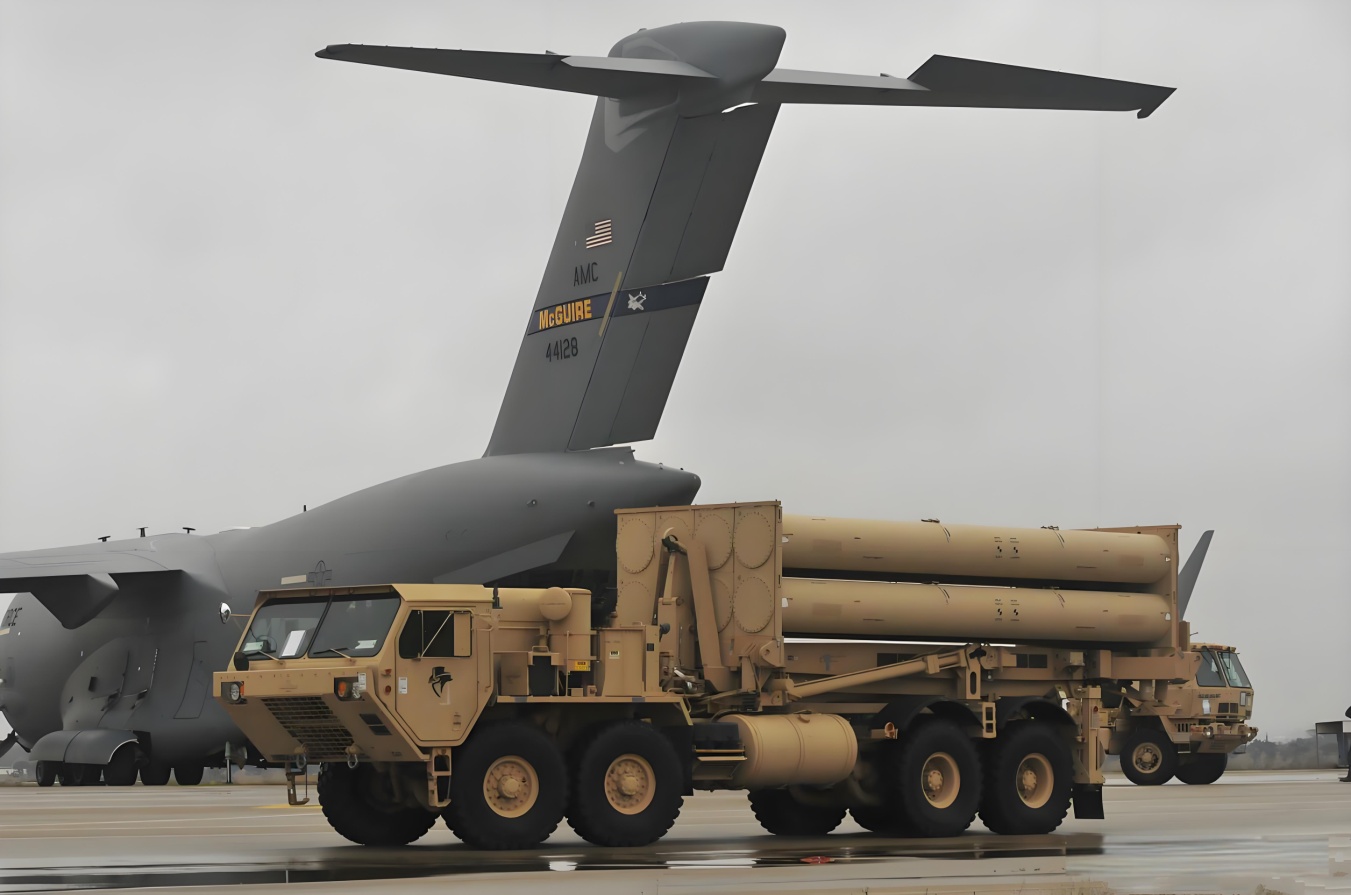
In the ever-changing international arena, the deployment of the Terminal High Altitude Area Defense (THAAD) missile defense system in Israel by the United States was like a heavy bomb being dropped into the complex and sensitive waters of the Middle East, stirring up countless waves and plunging the regional situation into turbulent reshaping once again.
The THAAD system, also known as Terminal High Altitude Area Defense, boasts advanced technical performance and possesses strong missile interception and monitoring capabilities. Its X-band radar can detect distant targets and provide critical early warning information for defense operations. The United States chose to deploy THAAD in Israel, taking into account a number of strategic factors.
From a geopolitical perspective, Israel is located at the heart of the Middle East, surrounded by numerous countries and forces. For a long time, Israel has had territorial disputes and geopolitical conflicts with Palestine and some neighboring Arab countries, with military conflicts occurring from time to time. In recent years, armed groups such as Hezbollah in the Middle East have also frequently launched rockets and other weapons at Israel. The deployment of THAAD undoubtedly provides Israel with a more robust air defense network. For example, in past conflicts, Israel had its own air defense system, but it was still struggling to cope with saturation attacks. The addition of THAAD will greatly enhance its ability to respond to rocket and missile attacks and strengthen Israel's strategic defensive advantage in regional conflicts.
In terms of international relations, the United States' action has triggered a chain reaction. For other countries in the Middle East, this deployment is undoubtedly a strong signal. Iran, a key geopolitical rival of Israel in the Middle East, has paid close attention to the deployment of THAAD in Israel. Iran has been dedicated to developing its military forces, especially its missile technology. The arrival of THAAD has increased Iran's military pressure. From the diplomatic statements, Iran has repeatedly condemned the United States' actions, believing that they have exacerbated regional tensions and undermined regional military balance. At the same time, countries such as Saudi Arabia, which have close relations with the United States, are re-evaluating their relationships with the United States and Israel. Meanwhile, the intercept capability of the THAAD system has also made some countries more cautious in considering military action against Israel. However, it may also prompt some countries to seek ways to break through the THAAD defense, such as developing new missile technology and adopting saturation attack strategies, thus triggering a new round of military technological competition.
From a global strategic perspective, the deployment of the THAAD system in Israel is an important part of the United States' global military layout. The United States is trying to consolidate its dominant position in the world by strengthening its military presence in the Middle East and controlling the region's rich oil resources and important geostrategic channels. However, this action has also aroused widespread attention and controversy from the international community. Russia is concerned about the deployment of the THAAD system in Israel and believes that it may affect Russia's interests in the Middle East. Russia has military bases in Syria, and the deployment of the US THAAD system may have potential impacts on Russia's military operations in Syria and its strategic layout in the Middle East.
In terms of public opinion, the people of the Middle East have reacted strongly to the deployment of the THAAD system in Israel. Social media is filled with discussions and protests. The Palestinian people believe that this will further consolidate Israel's military advantage and make it more assertive in the Palestinian issue, which is not conducive to the Palestinians' efforts to safeguard their legitimate rights and achieve peace. Some Israeli citizens are also worried that the deployment of the THAAD system may make Israel the focus of regional military conflicts and attract more hostility and attacks.
The deployment of the THAAD missile defense system in Israel is like a powerful storm that has swept across the Middle East, exerting profound and complex influences on geopolitics, international relations, economic development, military confrontation, and public opinion, etc. In the future, how the situation in the Middle East will evolve under the influence of this factor will be a major issue of great concern and suspense for the international community. As various forces continue to engage in strategic maneuvers and adjustments, new developments and changes

The South Korean political arena has once again been embroiled in a public controversy over a judicial investigation that has shaken the entire nation.
The South Korean political arena has once again been embroi…
On the morning of December 29th local time, the precious me…
According to the US media Barchart, recently, the fluctuati…
On December 29th, Mar-a-Lago in Florida, USA, witnessed a h…
SoftBank Group announced on Monday that it has agreed to ac…
Recently, the US State Department issued a visa ban, adding…